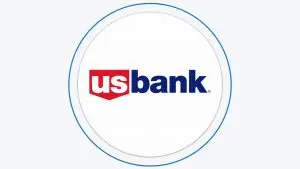Table Of Content
Usually, if one account owner makes a transaction, he doesn’t have to get the consent of another owner for it to push through. This implies that the two owners (or more) should maintain the account together responsibly.
However, when the owners of the account are husband and wife and they get a divorce, it could be a source of more conflict. Since each spouse has the full right to the account and can close the account with the prior permission of the other spouse, it can mess up the proceedings. One spouse can withdraw all the money and leave the other with nothing.
Here are some money-smart tips for terminating a banking relationship with a co-account owner.
1. Open Your New Account Before You Close The Old One
Before you begin to close your old joint bank account, you should already open a new bank account under your name and it should already be operational to receive your funds. If you start looking for a new bank only after you’ve closed your old account, you may have problems when you need to write a check, move funds or pay a bill.
One of the best things you can do is to scout around for the best checking account that fits your needs and lifestyle. This way, you can assure yourself that you have a short list of the best product that is in the market. Once you’ve made your choice for your new bank, ask them if they offer a “switch kit.”
A typical “switch kit” contains checklists and forms to instruct the account holders and billers about the change in your account. These things can help you transition to your new bank and new account more efficiently.
During this time, limit the use of your old joint account as minimally as possible.
Can I close a joint bank account without the other person?
Most banks will require their depositors to close their accounts in person. In a joint account, it is not necessary that both or all the account owners should personally show up.
As the joint owner of the account, you have the full rights to make transactions and any changes to the bank account. The bank representative might want to prove your identity so bring a photo ID with you.
On top of this, the bank may ask you to complete a standard request form to close the account (complete with your signature) before they can process your request. After this, they can now remit all the remaining funds to you or your new account and close your old account in their system.
What if the separation is not amicable?
If in case of a divorce where you and your spouse are not able to come to an agreement on how to divide your assets, you should seek the guidance of a mediator or divorce attorney to protect yourself and your possessions.
A professional may be able to freeze any joint accounts or deal with joint properties while the divorce proceedings are ongoing. Don’t forget to update any life insurance beneficiaries or provisions in your will as may be appropriate.
What If You Have A Zero Balance?
Some bank’s policy does not allow them to close an account unless they’re empty. To facilitate this process, you and your spouse should move your money out of your joint account before you try to close it. Of course, you should talk about what to do with the money.
You may put it in a savings account, use it as your initial deposit to a new account or just take the cold cash. It’s your money and you can do as you please – but observe a little caution when there’s an ongoing divorce.
Although you may claim that you’ve put in all the money that’s in the account, when there’s a divorce, you should never close or empty a joint account and transfer the money in your name alone to hide it or claim it for yourself without clearance from the court.
2. Cancel Automated Transactions
Now that many depositors have automated much of their finances, it has become a concern when they want to leave their banks. There now comes the burdensome task of re-establishing that automatic flow of money from their account to their designated merchants and recipients.
Take an inventory of your bank statement for the past six to 12 months so you can zero in on the automated transactions that you need to reroute to your new bank. These are possibly your rent payments, bills payments, direct deposits, utilities, and automatic fund transfers. You may also run across infrequent transactions that also take money from your old accounts.
Make sure to check online to find out which transactions remain outstanding. It’s also a great help to keep a running balance or reconcile the check register from the checkbook for your account.
It will tell you the checks that have cleared the bank and those that are still outstanding. Don’t forget to cancel all automatic payments you have linked through your old account.
Tip: Many consumers experience having a “zombie” account, which happens when a bank re-opens an account because a merchant attempted to draw money from it. Banks had to reopen closed accounts because of billing errors when customers forget about their automated bill payment.
3. Transfer Your Money
After you have updated your payments and deposits, you can begin to transfer funds to your new account. You don’t have to tell your old bank yet that you plan to close your account.
But first, check if there are any transfer limits since you may not be able to transfer your whole balance all at once. In such a case, you can do the transfer bit by bit over time. Also, if your bank requires you to maintain a certain amount, be sure to keep that amount in your account as well.
You can use any of these 3 methods to avoid fees:
- Wire Transfer. This is the easiest and safest way to get money from your old account to your new one.
- Cash Out. If you have the time to make a personal visit to your bank, you can withdraw all your money over the counter and deposit them into your new account. By depositing cash into your new account, you can immediately access your money when you need to.
- Write a check. If you don’t want to carry around a large amount of cash, just write yourself a check from your old account and deposit it to your new account. Just note the number of days it takes for the check to clear the bank.
When all this is done, you’re ready to close your old account.
Closing Debt Accounts is Different
It pays to know that there’s a different set of rules for joint debt accounts. It’s much easier to close a joint asset account such as your checking, savings, or money market account. Closing debt accounts at your bank, such as a home mortgage or car loan, is a totally different thing.
Some banks won’t let you close debt accounts until you pay them in full. Others will let you do only a type of soft close. For example, your bank may stop accepting new charges on your credit card but not let you close the account until you pay off the entire outstanding balance.
Debt accounts are even more problematic during a divorce. If you and your spouse bought the home together, chances are, you are also joint mortgagors. If you’ve divorced your spouse and your ex is keeping the house, you’d want your name off the mortgage account.
The only way out of this is to have your ex-spouse apply for her own mortgage to refinance the house. It’s not as if you can walk into your bank and just ask them to strike off your name from the mortgage or close the account. This same principle applies to car loans and other debts.
What Now?
If you’ve gotten used to having little or no control over your household finances when you were still married, it’s time to change your stand. Now, you’ll have to take a more involved attitude on your finances as you go through the divorce.
As you say goodbye to this chapter in your life, note that it takes time to get back on track. This time, you have to give more importance to managing your own money and focusing on your future because you’ll need it to have greater financial independence.
















